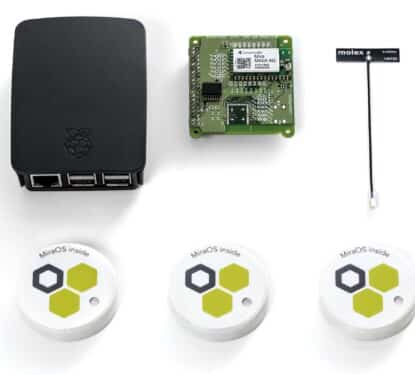We talk about smart cities a lot, but mainly we talk about their potential; for sustainability, for efficiency, for health, for safety, for innovation. In order to move past the hype and realise that potential, the sector needs to be less fragmented and more focused on interoperability, say several European leaders who will be hosting the Connected Smart Cities Conference in Brussels, this Thursday, 21 January.
Smart cities are characterised by a heterogeneous technology environment. In the Internet of Things ecosystem, home automation devices, security systems, power grids and anything else you can think of, should be connected to the Internet and have to talk to one another. However, today, there are many different types of devices, adapted for specific cities, with multiple platforms, which result in all sorts of interoperability challenges.

Martin Brynskov, Chair of the Open and Agile Smart Cities Initiative which is hosting the conference, welcomes city representatives, businesses and startups who want to hear how Europe will work collaboratively to clear the obstacles of individually focused solutions and create a common platform for new technological projects on the continent.
Many at the event will be hoping for Europe to emulate the smart cities programme launched by AT&T in the US earlier this month. The telecom giant announced that it is partnering with a who’s who of Big Data (Cisco, Deloitte, Ericsson, GE, IBM, Intel, Qualcomm) to create a “smart cities framework” for an initial list of major US cities, and a view to roll it out across the nation.
Brynskov states one of the biggest barriers to smart city adoption has been that solutions must take into account the deeply complex roots of individual cities, where cultural and political forces mean that a solution cannot be transported wholesale from another location and expected to work the same.
One would imagine, that Europe could pose significantly more challenges to interoperability, in that regard. US city centres are significantly newer than Europe’s, many are built on a grid system along with other infrastructure and maintain wide roads and pedestrian areas, not to mention the common primary language across the nation’s 50 states.
In Europe’s 50 nation states the situation could not be more different, there are 23 officially recognised languages, and more than 60 indigenous languages in the European Unions 28 members alone. Cities, sometimes thousands of years old, are characterised by their diversity. Each with it’s own unique pattern of winding narrow streets covering a maze of underground infrastructure. While the character such diversity brings to the continent is invaluable, it must present certain challenges when transferring technological systems from one urban area to another.
“Open and Agile Smart Cities is built on the stuff that people are doing already and finding what works,” says Brynskov. “We are asking: what is the minimum common ground that is needed to get smart cities projects shared across different cities?”
Collaboration within the city community and between cities is needed for these solutions to be replicable and scalable for wider cross-border deployment on a much larger scale. City service interfaces should be standardised using both grassroots-up and the top-down methods.
Juan José Hierro, Chief Architect at FIWARE, a technology platform for smart cities infrastructure and one of the co-organizers of the Connected Smart Cities conference, says this a is a typical problem when trying to scale smart city solutions from one city to another and is why conferences like this one are important to help people share experiences.
“The idea is to create showcases of what is possible and govern the curation of data models and the publication of them. You may need to work on them for the first 2-3 cities but you will reach a point in which data models are stable and then growth can be exponential. New cities simply adopt the model published and new apps also rely on them”.
To address this fragmentation, the European Commission has created the Association for Internet of Things Innovation (AIOTI). This association, like the AT&T model in the US and involving several of the same global tech companies (like Cisco and IBM), aims to encourage the tech companies that may be involved in rolling out large sensor and real-time data technologies across a city or region to agree on that that minimum common ground that Brynskov believes is necessary.
[contact-form-7 id="3204" title="memoori-newsletter"]
“The commission is going to invest 15 million Euros in projects that will be deployed in several cities in Europe”, says AIOTI Chair, Sergio Gomez. “Our association has asked, what are the needs for the cities? Who should be owners of the data? The infrastructure? How can we encourage innovative ecosystems? What should be the business models?”
The smart cities discussion is certainly moving forward in Europe, but whether it can keep pace with the US remains to be seen. However, greater interoperability on a global level will continue to benefit all those involved in smart city development, regardless of location.



